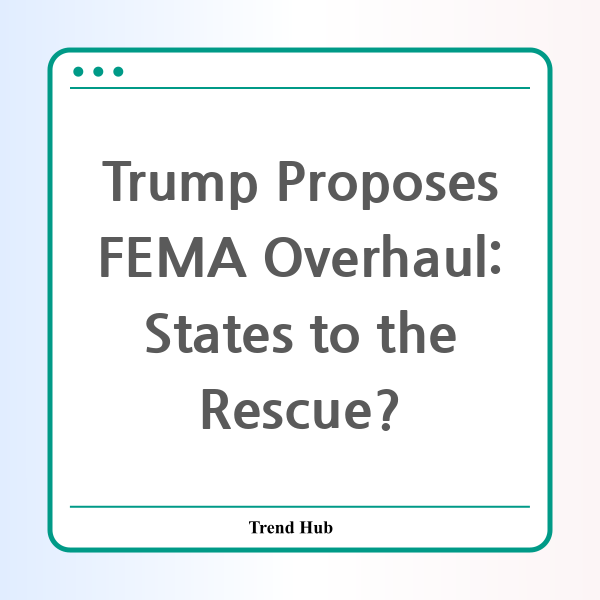* This website participates in the Amazon Affiliate Program and earns from qualifying purchases.

In a bold move during his recent visit to Asheville, North Carolina, President Trump expressed strong discontent with the Federal Emergency Management Agency (FEMA) and announced plans for a significant overhaul. This announcement marks his first domestic trip as president during his second term and comes as North Carolina continues to struggle in the aftermath of Hurricane Helene, which struck over 120 days ago.
Trump criticized FEMA, stating, "I think, frankly, FEMA is not good." He emphasized his commitment to fixing the ongoing disaster response challenges, asserting, "We're going to fix it, and we're going to fix it as fast as you can." The president pledged to sign an executive order aimed at reforming or possibly disbanding FEMA, as he believes the federal agency has failed to adequately support the state during this crisis.
The devastation wrought by Hurricane Helene has left many North Carolinians without proper housing, with thousands still living in temporary accommodations funded by FEMA. While the agency recently extended the deadline for these families to remain in hotels to May 26, Trump's remarks underscore a growing frustration with the pace and effectiveness of federal disaster response.
In a broader context, Trump’s comments reflect a fundamental shift in disaster management philosophy. He advocates for a model where states assume greater responsibility during disasters, arguing that local officials have a better understanding of their communities' needs and can respond more effectively.
Former leaders of FEMA have echoed this sentiment, suggesting that a more decentralized approach might lead to quicker and more efficient disaster response. Trump's proposal resonates with the idea that state governments can be more agile and cost-effective in managing local emergencies, potentially reducing the burden on federal resources.
During his visit, Trump reiterated the need for state-level management of disasters: "I’d like to see the states take care of disasters, let the state take care of the tornadoes and the hurricanes and all of the other things that happen. And I think you’re going to find it a lot less expensive. You’ll do it for less than half, and you’re going to get a lot quicker response." This approach could redefine the relationship between federal and state disaster management agencies.
The U.S. Army Corps of Engineers reported that debris recovery from Hurricane Helene is only halfway complete, stressing the urgent need for an effective response strategy. With ongoing discussions about the future of FEMA, it raises crucial questions about disaster preparedness and the adequacy of existing federal frameworks.
Critics of federal disaster management often cite issues such as bureaucratic delays and inefficiencies, which can hinder timely assistance when communities need it most. Trump's focus on state responsibility implies a willingness to streamline disaster response, though it remains to be seen how such changes would be implemented at the federal level.
As communities across North Carolina face a slow recovery, the implications of these proposed changes could reshape the future of disaster response in the United States. Will empowering states improve recovery efforts, or will it lead to disparities in disaster assistance across different regions? Only time will reveal the outcomes of this significant policy shift in disaster management.
* This website participates in the Amazon Affiliate Program and earns from qualifying purchases.